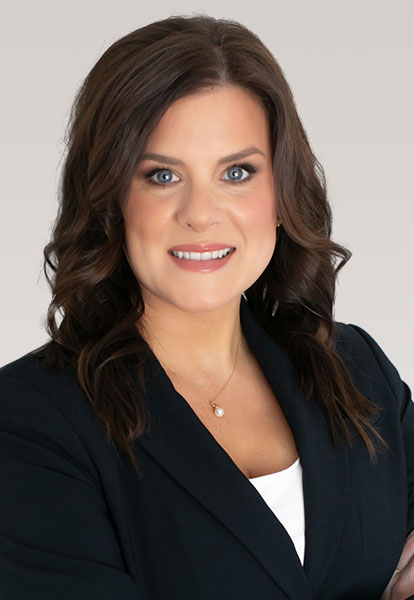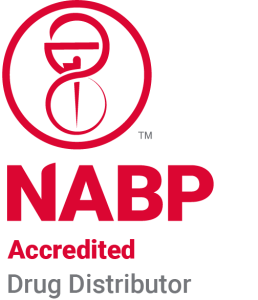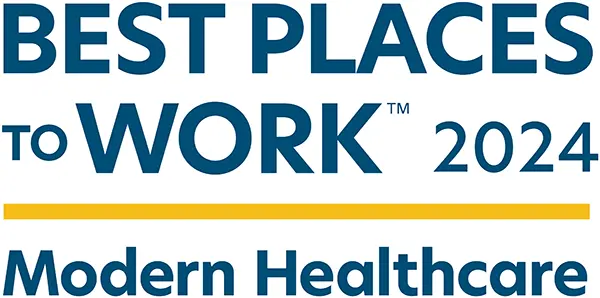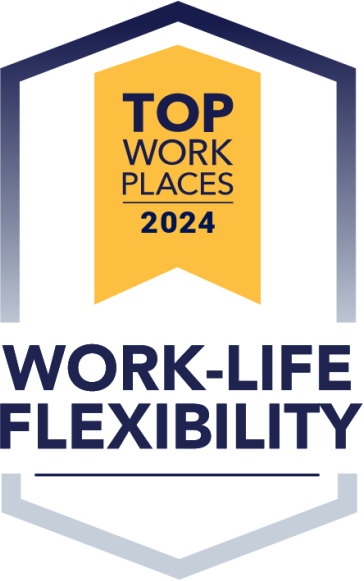Join us for an insightful discussion on the iCare+ Weight Loss Clinic and how it can be a game-changer for your pharmacy. In this webinar, we cover:
- Industry insights on GLP-1s and their growing demand
- How to determine if the iCare+ Weight Loss Clinic is the right fit for your pharmacy
Strategies for incorporating a tailored marketing plan - The cultural shift in weight management and how pharmacies can play a key role
- Real-world impact: pharmacies seeing a 20-30% increase in cash-paying patients
Did you know? iCare+ invested in this solution to provide an affordable and accessible alternative to costly branded weight loss medications while maintaining a conservative and patient-first approach.
Who Should Watch?
Pharmacy owners, pharmacy staff, healthcare professionals, and anyone looking to expand their services to meet the growing demand for weight loss solutions.
Need Help with Onboarding?
Contact our Center of Excellence team at support@myicareplus.com.
Learn more about iCare+: Weight Loss Program – Digital Health
Don’t miss out on this opportunity to enhance patient care and drive revenue growth!
Speakers:

Kate Helf
VP iCare+ Brands and Program Operations
IPC Digital Health

Samantha Pomeroy
Pharmacy Services Director
IPC
Transcript
Kate Helf (01:50):
I see a Couple more have trickled in and I do want to be sensitive to everybody’s time here today, so I’m going to get started. This is being recorded, so for anybody that does miss it today, they will have an opportunity to listen to the recording at the time of their pleasing. So thank you all so much for joining us today. My name is Kate Health and I am the Vice President of iCare+ Brands and Program Operations. We are really excited to be here with you today talking about our iCare+ Weight Loss Clinic. For our agenda, we’re going to be talking about conversations around GLPs, industry insights and shifts. How to decide if the iCare+ Weight Loss Clinic is something that you should be considering at your pharmacy, incorporating a marketing strategy, making sure that we’re tailoring that to your pharmacy needs. And then we’re going to finish up with a q and a. As a reminder, before we get started today, you do have to be an iCare+ Virtual Healthcare Center in order to gain access to our weight loss solution. If you have any questions about this process, we have a wonderful Center of Excellence team that can walk you through our onboarding process and can be reached at support@myicareplus.com.
(03:08):
So before we get started in discussing the Weight Loss Clinic today, it’s really important that we discuss why we invested in this type of an offering. GLP is continue to dominate the conversation within the healthcare industry and receive a significant amount of attention from press and various social media outlets. I cannot tell you the last time that I have turned on the TV and didn’t see some type of commercial advertising around GLPs DLPs. While I know they can be a controversial topic, their growing demand for costly branded options has really driven patients to seek alternative solutions. The weight loss drugs have been highly sought after in various ways. Celebrities we’re seeing it everywhere, leaving pockets of shortages across the country, paving the way for other marketplace options or solutions. This is really where we see compounded GLP-1s come onto the scene as they offer an alternative for patients and pharmacies to provide an opportunity to bridge any type of a shortage or an affordability gap. iCare+ really saw this shift taking place and invested into a Weight Loss Clinic while maintaining a very, very conservative approach for our members, which is so key in this type of environment.
(04:34):
I would say over the last six months or so, I’ve had various conversations with pharmacies adopting weight loss solutions within their pharmacy or within their four walls. I asked how this type of program caused any type of a shift in overall mix and really what they ultimately said was there was about an increase of 20 to 30% in cash paying patients that were coming into their pharmacy. Now this is of course going to vary by state, vary by demographic, et cetera, but I thought it was a good directional percentage to talk about today for those that are considering this type of an offering.
(05:16):
The last piece that I want to talk about I think is really important as we dive into the specifics around our Weight Loss Clinic is the massive cultural shift that we are seeing within society. Talking about ways to introduce overall nutrition and examining how healthy weight loss solutions can fit into a day-to-day life of a consumer. We’ve reached a point where the conversation has been highlighted at the highest of political levels, hence causing customers to be asking more questions now than they ever have before. While GMPs are a great starting point for properly qualified candidates, which is in this process, as I’m sure many of you know, the conversation is paving the way for pharmacies to consider really how they look at patients today and for customers to consider how to look at patients with a little bit more of a holistic view. Once you customer at the pharmacy sees the types of results that they can ultimately get with these GMPs, this is a great time for pharmacies to be thinking about ways to identify next steps to support that patient in their weight loss journey.
(06:29):
This is a great time for pharmacy to consider. Do you have a great nutritionist locally or within your network that you could provide to support your customer? Or can a pharmacy introduce some type of a supplementation routine that really does have quality source ingredients that can continue to support your patients so they see the results that they’re looking for. While I know this topic can be a little bit intimidating for some, this is not obviously what you went to school for, I want to continue to encourage pharmacies to be open to this type of a path, especially as we continue to see the reimbursement model continue to shift so much.
(07:09):
Alright, now that I’ve set the stage here, I would like to bring Sam into the conversation to talk about the iCare+ Weight Loss Clinic and the opportunities that it provides for our members. So Sam, thank you so much for joining me today. Just to do a brief introduction here, Sam is our director of pharmacy services and a key member from the pharmacy team focused on pharmacy based value added services for IPC members. I’m sure many of you have worked with her in some way, shape or form over the previous years here, but she really is a wealth of knowledge and has a deep knowledge subset for the compounding world. So Sam, I have a couple of questions prepared here and I just want to get your view on our iCare+ Weight Loss Clinic. So Sam, how long have you been in pharmacy and really what makes you passionate about discussing compounding options for our pharmacies?
Samantha Pomeroy (08:05):
Sure. Well first of all, thanks for including me in this, Kate, you set a great foundation for our topic today as far as the why. But to answer your question, I have been in pharmacy since 2003. I cannot believe it some days. I started out as a certified pharmacy technician, at an independent pharmacy, and from there I moved into other areas of pharmacy. I spent stints of my career in the hospital setting, which I truly loved. I spent a short stint of my career in chain pharmacy and I quickly learned that that was not for me. And then before coming to IPC specifically, I was the director of operations for a group of independent pharmacies that focused on compounding and clinical services and as it relates to my passion for compounding and clinical services. Earlier on in my career, I completed a comprehensive compounding training course and I received my certificate from PCCA, which I’m sure many on our call are familiar with PCCA and who they are a great organization and I truly fell in love then with compounding and the possibilities not only for patients and for patient care, but for our pharmacy business and what it could do for it.
(09:30):
So from there I began doctor detailing promoting the service that our pharmacy provided, and I would go in and I would ask the physicians to give us a condition that they were having issues treating with commercially available drugs, and we would then make a formulation for the compounded drug medication. We would follow the patient through treatment and we would report back the results to the physician and it grew from there because the patient saw lasting results from these specialized and tailored compounded drugs. So not only did it help so many people that I saw, but what it also did was it opened doors, possibilities, relationships between the pharmacy and local physicians. We had their trust and we had their business and this resulted in great cash revenue for the pharmacy that kept us alive and that is what we preached to our members today at IPC. Look for that cash business, look for that need in your community that is not currently being met. That could be your niche thing. So for one, I love being in the lab, making formulations, thinking outside of the box with patient care. Two, I really saw it helps so many patients, and three, it can be a great cash revenue stream for your pharmacy.
Kate Helf (10:50):
Absolutely agree with all the points you just hit on Sam, and as I discussed earlier, with the change that we’re seeing within this reimbursement model, it’s so important to consider more options like this because pharmacy has a little bit more control and ultimately some of these outcomes here. So I really appreciate that background and looking forward to talking more about the clinic. So let’s transition to really talking about who is the best fit. We have a lot of pharmacies on the phone today and some may be considering this, some may already have some type of a program or a solution that they have in place. But in your mind, Sam, what do you feel is the best type of pharmacy for this type of a clinic?
Samantha Pomeroy (11:29):
Sure. I really feel that this can be an opportunity for pharmacies that are currently dispensing compounded GLP-1s medications to their patients. Whether you are a 503 a compounding pharmacy making these medications in your lab, you’re compounding them in-house or you are sourcing from a 503B compounding pharmacy and dispensing it from the pharmacy to the patient, your pharmacy could be a potential fit. If you currently are not dispensing compounded GLP-1s medications at all and you are interested, then you would have to establish that access and that pathway before signing up for this clinic. We also like to see that pharmacies are supporting their patients through their weight loss journey with education. This brings up so many opportunities in patient care for the pharmacist and the patient. So how are you supporting that patient and their weight loss journey with education consultation follow up? So if you currently have a weight loss program and you are needing access to doctors, to telehealth doctors that will work with independent pharmacies and you’re looking to grow that business, this could be a great fit for you.
Kate Helf (12:42):
Absolutely, and I think really the structure that we’ve created with iCare+ platform really allows this for seamless integration. I think there’s a lot of things to ultimately consider with these type of a program, but we want to make sure that we had that infrastructure to really support our members in the best way. So we’ve identified who we think is the best fit for members that are unsure about implementing this program. Sam, we have, as I said in the beginning there, there’s some current controversy around GLP and the industry is shifting so much. What are factors that our members should ultimately consider and where would be a good place for them to ultimately start when thinking about this iCare+ Weight Loss Clinic?
Samantha Pomeroy (13:26):
Sure. So a pharmacy should really consider the time that might go into offering a weight loss program to their patients. As I said previously, a pharmacy will need to support their patients with regular follow-ups, additional consultation time and education around these drugs. There are unknowns, there are side effects that can occur. So this additional time with the patient can be very rewarding, but it can take some extra time. So what’s great about iCare+ is that we provide our member pharmacies and their patients with access to licensed telemedicine doctors. We provide them with the ability to request customized dosage and forms unique to your pharmacy. So that’s great as well as the iCare+ platform to really help you and be a great tool to help monitor your patients and their progress. SO’S not as much as a lift, but a full weight loss program would be up to the member pharmacy to implement with that supplemental education that you would need. Also, when you’re a compounding pharmacy or you’re sourcing from a 5 0 3 B compounding pharmacy, there is always that compliance factor. If you are compounding, are you USP 7 97 or 800 compliant on your state and what is required and if you are sourcing, are you making sure that the 503B pharmacy you’re sourcing from is compliant as well as keeping up with the drugs that have been removed from the FDA shortage list? So compounding in our industry can be heavily scrutinized and we just want to make sure that our members are following all of the appropriate guidelines. So that’s where we are here to help.
Kate Helf (15:19):
So if I’m hearing you, Sam, it’s are you compounding pharmacy already? Are you contracted with a 5 0 3 B and do you have the type of structure to really support that compliance piece as it relates to managing this overall weight loss program? Those are some great areas for pharmacies to ultimately consider, but really pinpoint as it relates to, is this the best type of a fit for you? So let’s say a pharmacy says yes, this is definitely something that I am interested in. What is the time commitment, in your opinion, Sam, that is required for a successful implementation of this program?
Samantha Pomeroy (16:00):
It really depends on the pharmacy and what their goal is. As far as time commitment with a weight loss program in general. So the different categories that we have discussed, if you are a pharmacy that is not currently doing any compounding and that is a goal of yours and a service that you are looking to add to your business, I would see consultation. We can guide you to some wonderful experts in the industry, but that is an investment with time and money, but it can be very rewarding. If you are currently compounding and are looking to make these medications in your lab, then you would need to look at what you’re compliant to do and accredited and then source the API, the active pharmaceutical ingredient, create your formulations and build out a support system for the patients with education. If you are looking to source these drugs from a 5 0 3 B facility pharmacy, then you will need to vet them and set up that pathway along with, as we spoke about earlier, determining what that pricing structure looks like for your patient.
(17:04):
So educating staff is really important and how much time you want to spend promoting a Weight Loss Clinic or a weight loss program in your store. Luckily, like you said at the beginning of the call, we are in a market that these medications are in high demand and that is why we can compound them because of patient demand and shortages across the country. So that helps from a marketing standpoint and from a sales standpoint in my eyes. But Kate, from my experience and the pharmacies that I consult with through pharmacy services here at IPC, the most successful programs are the ones that a great foundation was built for first with training and time. Absolutely. I wouldn’t say it’s a huge time investment, but it is some additional time and things that you have to get everyone on board with. I do want to hit on just one more piece before we go to the next thing from an iCare+ standpoint. So if you are currently dispensing GLP-1s medications and you’re ready to go, you must first onboard as an iCare+ virtual healthcare clinic, set that foundation, then you can request access to the Weight Loss Clinic and program. So full onboarding including setup and training could take four to six weeks as far as a time commitment to start and then go into implementation and we’re there every step of the way. Kate, you’ve talked about our 30, 60 90 day plan and helping our members to really implement these solutions in their pharmacy, so we’re here to help.
Kate Helf (18:43):
Awesome. So around four to six weeks is typically what members can ultimately expect if they are not an iCare+ member today, but if they are already an iCare+ member, we’re saying around the two week timeline has been pretty consistent with what we’ve seen from our onboarding side. I have a lot of customers saying that ask about how successful is this program, what are some success stories that we’re ultimately hearing as it relates to the clinic. Is there anything that you can share with our pharmacies on the phone today as it relates to some success stories that we have seen with our clinic?
Samantha Pomeroy (19:20):
Sure. We’ve tested several pharmacies throughout our beta process and we’ve received great feedback. We wanted to test to make sure that things ran smoothly not only for the pharmacy but for the patient as well. So anytime a patient or the pharmacy has an issue, they can reach out to our wonderful, we mentioned them at first, but I can’t call them out enough, our wonderful iCare+ Center of Excellence team and they work to resolve it. Our center of excellence team, they’ve received recently some really nice emails from our members praising them, so that’s always so nice to see as an organization and rewarding. We have quite a few of our members. To your point though, we have quite a few of our members that are sourcing from 503B pharmacies and that seems to be very successful for them with a lower commitment than compounding in-house.
Kate Helf (20:14):
Got it. So we’ve talked a lot about our COE and support that we have there. We’ve talked about the best candidates why stores should ultimately consider in the implementation time. I want to transition to, I’m not a big deck person, I like to have more conversations back and forth, but I do want to transition to at least about three or four slides to make sure we’re really hit on the specifics of this program. So I’m going to have Yvonne, who is our product marketing and project manager of Digital health. I’ll share her screen as we’re just seeing the transition here and we’re going to have Sam start with the first slide here, which is really going through the program criteria and requirements for the clinic. Sam, I will turn it to you.
Samantha Pomeroy (21:00):
Sure. So this is just really recapping some of the things that we’ve already discussed about the requirements for the pharmacy and participating in the clinic. So as we have said, first you must become an iCare+ virtual healthcare center and hopefully you’re reaping the rewards from that with the additional opportunities that you can now see. We are working in with this Weight Loss Clinic and then you complete the weight loss onboarding form, which I believe we will have for you to be able to scan towards the end of our presentation. It is a hundred dollars per store per month for our IPC pharmacy members, and so there is that you must be dispensing a patient specific prescription for the compounded GLP-1s medication. So whether you are a 5 0 3 A or you’re compounding pharmacy making it in a house or you have sourced it from a 503B facility, you must dispense it from the pharmacy directly to the patient in a patient specific prescription and then you must guide the member in accordance to the patient rules of engagement throughout our application and how they would do the telemedicine visits. So Yvonne, you can go to the next slide.
(22:20):
Our Weight Loss Clinic Telehealth physicians do have certain guidelines that they follow when assessing if a patient is a candidate for the program. So we really appreciate this and worked hard on this with them. One of those requirements being a body mass index from 27 to 29 with one comorbid condition or a body mass index greater than 30 with no comorbid conditions. So that is a starting requirement for your patients that you would be able to discuss with them to see if they’re a candidate to participate In the clinic. Also, our iCare+ telemedicine providers have created a list of contraindications, which I think that this is very important for the program that they do not accept. They do assess each patient through the telemedicine assessment on a case by case basis and the physician can qualify or deny the patient depending on that assessment and what comes about. But when the patient does the visit, they are prompted to answer questions about their health and some of the contraindications, that’s a word are listed here so you can kind of see a few of them. Women who are breastfeeding pregnant or who plan to become pregnant within the next year would not qualify if you have a history of thyroid cancer, if you’ve had an organ transplant, liver failure, if you have active issues with your pancreas or gallbladder or if you’re over 75. So we do provide these contraindications to our pharmacies and protocols for the clinic so that you can review them with your patient and see if they’re a fit to do the visit. You can go to the next slide.
(24:19):
I believe this is where Kate is going to come in and talk about the marketing support, but I do want to mention one thing, Kate, before we get into that. The patient journey through our iCare+ app is very simple. The patient requests a weight loss telehealth visit. There’s an initial visit and area and there’s also a follow-up visit area that can be chosen. It’s quick and easy to do in the comfort of their home or if they’re in the pharmacy and you’re a virtual healthcare clinic, if they’re in the pharmacy, you can help them with the visit, but it’s very simple to do. So making it easy for you and for the patient and we can provide our members that are interested in joining this clinic or joining iCare+ with a demonstration. We have a great team to do that, so always happy to provide them with a demonstration of how all of it would work.
Kate Helf (25:14):
Absolutely, and that’s a great call out Sam. So we have an awesome consultation deck that really gets into more of the details that we covered today. We also have a great training video and it’s prerecorded and it’s something that we can ultimately send our members to folks that again, that are interested in learning more and want to listen on our own accordance here. So we will be providing you all with those resources as it relates to ultimately our call to action at the end of this call here. This marketing slide is so important to touch on and I have to give Yvonne again a shout out here because she’s been so instrumental in helping us really build this strategy for our iCare+ Weight Loss Clinic members.
Samantha Pomeroy (25:58):
It looks great, it looks really good.
Kate Helf (25:59):
It looks awesome. I was really, really pleasantly surprised with how this ultimately turned out. And so if you decide to onboard and become an iCare+ clinic, you can expect to get a POS just a picture of this as you’re seeing here a POS kit into your store, which is going to give you the various marketing resources that are ultimately called out here. So you’ll see the toolkit, you’ll see some patient flyers, brochures, anything to really support and help with you, the pharmacy looking to market this to your patients. We also have a consumer landing page, which you can see here at the bottom is just quick snapshot of ultimately the simple steps involved to signing up to our iCare+ Weight Loss Clinic. But consumer landing page is so important too because we know we have a lot of customers that are asking questions.
(26:56):
It’s a great way to direct them to a page that really can answer more of getting involved within that process. We do have downloadable social media graphics. Social media is such a huge area for our stores I think to be involved with nowadays. That’s really how we’re getting some of those messages out. I think everybody kind of has their own strategy, but some of the platforms that we’ve seen of course work well is Facebook, Instagram, and I know sometimes going on TikTok, whether that’s accessible or not. So those are some great areas to look at marketing, this type of an opportunity for the members coming into your store. The last piece of this is we do focus on paid campaigns. This is kind of going on behind the scenes and the campaigns focus specifically within five to 10 miles of your pharmacy to help and support our marketing efforts for our members. This is maybe not something that you are physically seeing, but it’s a great thing for us to call out because we’re actively working on updating those campaigns and ads to make sure that we’re seeing the type of customer and patient flow coming to your pharmacy.
(28:07):
All right, so with that, we are reaching more the end of this session here. I do want to make sure we call out some of our resources. So first, as I talked about within the beginning of the call here, if there are any questions as it relates to onboarding or what to do next, we have our support@myicareplus.com. We will be able to guide you as it relates to the next best step for you and your pharmacy. We have options to click onto our onboarding form. It’s important to understand that if you are an iCare+ pharmacy, you have to fill out an initial onboarding form and if you are also going to be part of the Weight Loss Clinic, you have an additional onboarding form to fill out to make sure that you are qualified for this program.
(28:52):
As it relates to questions, we want to make sure that we’re leaving enough time here at the end, but we had a couple questions that did come in before the webinar today and I do want to make sure we hit on those first and then we will open it up to the rest of the pharmacies here on the phone today to see if we have anything else that we did not address. First question I have that came in here is does IPC have a 5 0 3 B partner or one that you can recommend? Sam, I’m going to turn this one to you, but I know pharmacy services has been working really hard on trying to partner and source the best here. So is there anything that you can share with our stores as it relates to the progress that we’ve made?
Samantha Pomeroy (29:34):
Sure we are working diligently to bring our members a solution for this and for you to be able to have access. I hope to be able to report back soon a pathway for our members to get these medications through a 5 0 3 B pharmacy with negotiated pricing. So more to come on that. Hopefully we have an update soon.
Kate Helf (29:57):
Awesome, thanks Sam. The next question is can iCare+ to nine onboarding application I will answer this short and sweet. The answer is yes, but I’m going to let Sam provide a little bit more detail as it relates to the process that we go through for these onboarding applications.
Samantha Pomeroy (30:14):
Sure. So to just elaborate on that, yes, we do work with our telemedicine physicians closely to review the onboarding forms and to really ensure that our members are operating appropriately in this space. So after review, if our telemedicine providers find an issue, some examples is perhaps you’re not in good standing with your state board or you are not making the compounded GLP-1s appropriately, then you can be denied access to participate in the clinic by our telemedicine providers.
Kate Helf (30:52):
And I would say to that point, Sam, it’s not often that obviously a denial is happening, but that goes to the points that we’ve made throughout is we have to make sure that we have a very compliant program and we’re very intentional about who is involved within our clinics. The last question I got here, Sam, is can you give us any intel as to what to charge for the compounded medications? I’ll take a crack at this first, and Sam, you fill in where I may have missed the answer is I don’t like to give an answer on this. I think the reason is because every pharmacy is obviously in different states, they have different demographic considerations, they also have different patient considerations. It’s really difficult to say what is the best type of a structure in this environment given there are so many other factors to ultimately consider. The other thing to think about of course, is from a competitive standpoint, are there different competitors within the area that are offering this type of a solution? So those are the things that I always think about when it comes to a pricing structure. But Sam, I don’t know if you would elaborate anymore.
Samantha Pomeroy (32:04):
Sure. We can always consult with our members on this in pharmacy services to kind of help guide you. I think that it’s really important to, especially if you’re compounding right, to take in consideration the time that the technician is making these drugs in the lab because there’s time there and that’s money. So take that into consideration all the way down to the device, you’re dispensing it in the label, all of that so we can kind of work with you to make sure that you’re thinking of all of those things and your price along with that competitor intel that you would bring to the table.
Kate Helf (32:47):
Absolutely. I think those are great call outs, Sam. Alright, we will transition over to the chat and see if we have any questions for today. It looks like we had one that came through. Can you describe why the iCare+ MD requests the lab after the first patient visit? This is a great idea and speaks volumes to the clinical validity of the iCare+ platform. Sam, I’ll let you take that one.
Samantha Pomeroy (33:17):
Sure. Thank you Ash. So it’s really important when we started thinking about this clinic and our telemedicine providers through iCare+ started thinking about this clinic, the different guidelines that they were going to follow. You saw their patient requirements, the contraindications, et cetera. So because there are side effects and because there are so many different things around wonderful things and can be negative side effects around these drugs, our licensed telemedicine physicians want to make sure that after they’re getting that first prescription from the pharmacy, after they pick it up from you, that they get this lab work done and that is integrated into our application in the lab work section. So it’s very easy for the patient to see the lab work but just to make sure that their levels are appropriate and that it’s going the way the dosing and everything like that is going the way that the telemedicine provider thinks that it should.
Kate Helf (34:20):
Absolutely.
Samantha Pomeroy (34:21):
So great call Ash.
Kate Helf (34:23):
I see a couple more questions that have come into the queue here. One of them is are your iCare+ telehealth providers dedicated to only prescribing GLP-1s?
Samantha Pomeroy (34:37):
I can take that Kate. So the answer is no. In this clinic in the Weight Loss Clinic, yes, our telemedicine providers are focused on those compounded GLP-1s medications and the formulations that you are providing in your onboarding form as long as they meet the requirements that they need to compound those drugs. But in iCare+ our telemedicine platform, we have a lot of different clinics. We have women’s health, we have men’s health, we have primary care area, we have ophthalmology, veterinary even in a few states that it’s allowed. So we have an array of different clinics for your patient to be able to choose from through our telemedicine platform. So there’s kind of two parts to that question. In our Weight Loss Clinic, yes they are focused on the GLP-1s compounded medications, but in our other clinics it’s really dependent upon the therapy or the medication that they need and that’s all integrated into that virtual healthcare clinic and the patient ties the pharmacy to their profile and that prescription goes to the pharmacy that they’ve chosen.
Kate Helf (35:53):
Absolutely, Sam, I think that’s a really big part of what we’re focusing on from a strategy standpoint of our iCare+ is obviously from the GLP that’s focused on the Weight Loss Clinic, but we really do have so many other clinics that our pharmacies can ultimately take advantage of. So I appreciate that call out. I really think that speaks to what we want our members to see more from us in 2025. The next question we have Sam, is if you are not a compounding pharmacy, could you source from a 5 0 3 B? That’s part one. Part two, do you have a 5 0 3 B partner for supplying to IPC? So I think we hit on that a little bit, but let’s focus on that first part here. If you are not a compounding pharmacy, could you source from a 5 0 3 B?
Samantha Pomeroy (36:42):
Yes and we can help guide you in that depending on your state and the requirements and things like that and setting up that relationship with a 5 0 3. But in general, yes, if you are not compounding and you want access to these drugs, then you could contract with a 5 0 3 B. But Steve open to consultation to your state and the requirements for setting that up and to see how we could help you with that.
Kate Helf (37:13):
Awesome. Last or a couple other questions that I’m seeing coming through here. Do you have education on counseling around side effects, side effects management? So I am guessing just around any side effects from taking these GMPs.
Samantha Pomeroy (37:34):
We don’t currently. Kelly Stovall, she’s a clinical pharmacist in our pharmacy services department. She’s VP of pharmacy services. I think that that is something that we could look into for our members for sure and also work with our telemedicine providers too to get that for our members that are wanting to participate so that we can make sure that you are consulting with your patients appropriately and discussing all of the side effects and things like that. But some of it is going to be self-education with these drugs and what those side effects might be for the patient.
Kate Helf (38:10):
I think it’s a great call out and I definitely think it’s something that while we’ve been focused of course of getting this clinic off the ground, we want to make sure we have the best resources for our customers. This is a great opportunity for pharmacies to come in and really also do their best to consult on different types of effects or side effects that a patient could ultimately experience while going through this program. So definitely something that we can work toward from an educational standpoint.
Kate Helf (38:37):
Another question I’m seeing here is what is the cost of the patient for the visits? Is this a subscription based model regardless of if there is a visit that month? Sam, do you want to take that one? I can take the subscription part.
Samantha Pomeroy (39:00):
Okay. So for the Weight Loss Clinic, you have to remember with an iCare+ there is an array of clinics, the Weight Loss Clinic and a visit for a patient to do their first visit with the telemedicine provider because of all of the questions that the patient has to answer. It’s a little bit longer visit for the telemedicine provider that first time, which is what we want establishing that patient provider relationship in that first visit. That first visit is $90 for the patient and any follow-up visits after that for refills, following up on progress, any side effects that they’re having, a dosing change, anything like that is $65 for the patient and then that it’s up to the pharmacy on what you charge for the prescription to the patient that is all held at the pharmacy PO point of sale.
Kate Helf (39:59):
Absolutely, and that is a great question. That is something too, as we discussed, we have a consultation deck that gets a little bit more pointed to the details of our program. We go through that with each of the pharmacies so they do understand the cost involved
Samantha Pomeroy (40:12):
From a subscription standpoint. I was going to touch on the subscription based model. We do have that for iCare+, but the Weight Loss Clinic is excluded because it is specialized and tailored to the patient and to our independent pharmacies. So if they needed to go in and see a doctor for the flu or anything like that, we do have a subscription based model for our iCare+ patients that’s very affordable but the Weight Loss Clinic is excluded from that.
Kate Helf (40:48):
Perfect. I think I just saw one more question come in. I want to make sure we’re getting all of these here. Is revenue for the pharmacy only generated from dispensing the compound or does a pharmacy get kickbacks from visits slash consultations?
Samantha Pomeroy (41:12):
I can take that. We don’t ever like to say kickbacks,
Kate Helf (41:18):
Correct,
Samantha Pomeroy (41:18):
But the initial revenue for the Weight Loss Clinic would be from the prescription and what you’re charging the patient. But we also have an iCare+ Telepharmacy Lite and what that is is when an iCare+ telemedicine doctor writes a prescription for your patient and sends it into your pharmacy, for instance, this A GLP-1s compounded medication prescription has been sent into your pharmacy. Then within seven days, if you call that patient through our platform through the iCare+ provider platform and you connect with that patient and you have a five minute call with them, then iCare+ pays you $15 on that follow up for the call. So that is some additional income that you would have and really in this case would be easy to do because they’ve picked up the prescription. Like we said, we hope that our members are supporting with education follow-ups, making sure the patient isn’t having side effects with these GLP-1s medications. So within seven days of that patient picking up that prescription, call your patient, check in with them, you make a clinical documentation in our platform and we pay you $15 for that follow up.
Kate Helf (42:34):
Perfect Sam and as Sam said, we really encourage this because given the program and some of the nuances with this is a great opportunity for our pharmacies to continue to solidify their value, consult with the patients and get paid an additional dollars of Sam said $15 for being able to complete that process. Alright, great Questions.
Kate Helf (42:58):
I know I’m loving all these that are coming in here from what I’m seeing. I think we got to everything. Let me just make sure on both here. Oh, I think we got one more. Will the iCare+ providers be able to prescribe, excuse me, sublingual semaglutide if a pharmacy already compounds it or will they focus on the injectable GLP?
Samantha Pomeroy (43:31):
If you want me to. So in the onboarding process to whatever pharmacy ask that question in the onboarding process, we do have a template for you to input the form that you are either making or sourcing, whether it is an injectable or a sublingual, an oral form. So we do have a place for you to put those formulations and that’s what I was talking about. That’s where our telemedicine clinic overseer comes in for the Weight Loss Clinic and they look at those formulations to make sure that their accurate within the guidelines that they need to be and approve those. So to answer your question, that’s what it means for us to really make the clinic what our pharmacies need it to be because we’re all independent businesses doing things a little bit differently. So we do take that into consideration. So to answer your question, yes, they could write for sublingual or the injections, they don’t have a specific, it is really dependent upon your onboarding form and what is uploaded to the telemedicine doctor from your onboarding form specific to your pharmacy.
Kate Helf (44:41):
I think you’re touching on a great point, Sam, the onboarding form. It’s so critical that that is filled out with as much detail as possible for us. We’ve had a couple of forms that have been submitted and just the minimal information was included and that’s not a good way or a good picture for us to really see the best that from a pharmacy standpoint that you’re the best fit for this. So these type of questions are great to have, but make sure you’re adding that detail to the onboarding form so we can personally see it and make sure that we are making the best educational response to these specific onboarding forms. I think
Kate Helf (45:23):
We got them all, Sam. I don’t see any more that have come in through the q and a or in just the regular chat here with teams. So I want to thank everybody so much for joining us here today. These have been awesome questions and we’re looking to continue to obviously build upon everything that we discussed here today. I do want to call out the screen as well, so if you are interested in getting started, you just scan this QR code here and it will take you directly to our onboarding form where you can fill in as we just talked about the details as it relates to your inquiry. And also if you are not ready to go down that path here just yet, like I’ve mentioned, we have a great consultation deck to refer you to and can have different training resources as well as it relates to our videos to make sure that you ultimately get what you need to make the best decision for you and your pharmacy. So thank you so much for your time today. I know how valuable it is and I really hope you were able to get a lot out of this webinar. Sam, thank you so much for the support.
Samantha Pomeroy (46:27):
Yes, thank you.
Kate Helf (46:29):
Alright everybody, have a wonderful weekend.







 by
by